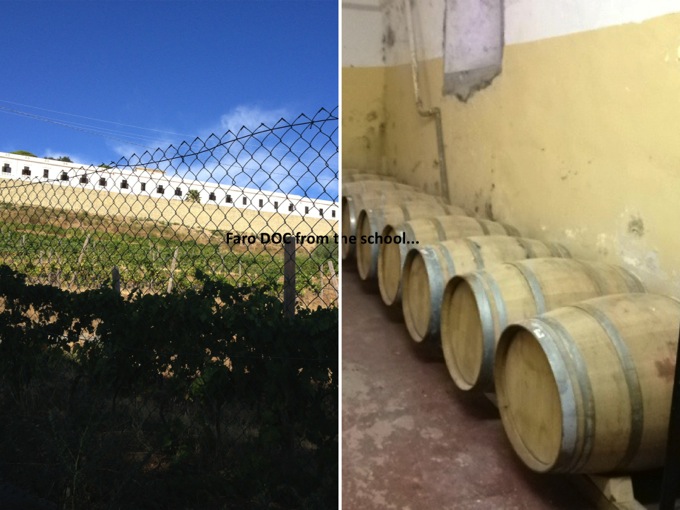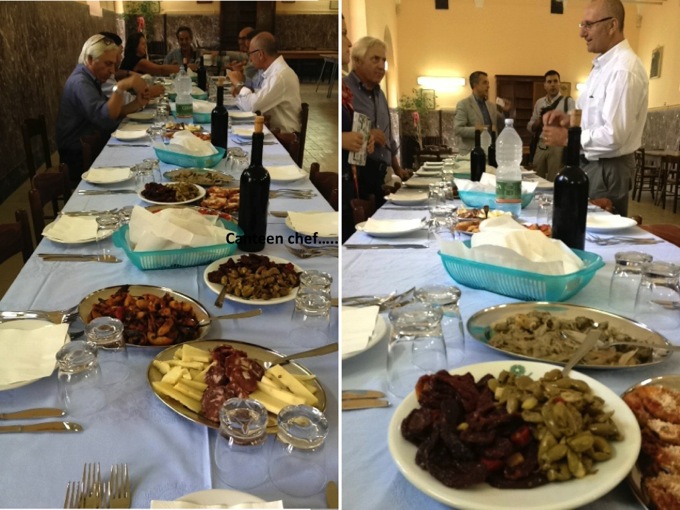Messina / Opportunities and challenges
Food oriented culture
Messina demonstrates a strong potential based on its traditional and still very vivid food culture. The issue of sustainable food in urban context emerged more recently probably because of the diffused average attention to food and eating quality products, the close agricultural hinterland rich of local traditional food production and small transformation enterprises oriented to quality and what could be qualified as a diffused gastronomy and popular interest in food as a cultural and identity backbone.
Part of the food feeding the city comes from international agro-business, industrial transformation and supermarket chains distribution but a local traditional food system still exists. Talking about sustainable food then refers both to raising awareness on emerging sustainability challenges but also rescuing the traditional food system from destruction.
Observing food culture in Messina during the initial short visit, many specific attitudes or activities emerged as symptomatic and could be stimulated to avoid the dilution of this culture or to regenerate engagement with food where it was lost.
For instance teaching food is a ‘global experience’: a food school installed in a former monastery facing the Messina strait panorama is surely a highly stimulating place for pupils to learn food as a professional capability but also more in-depth as a culture. Even if managing a food school in a classified building isolated from city transport is certainly a challenge, the model is certainly worth to imitate in order to instil appetite to quality food among pupils.
| Canteen chef | The experience of the canteen of the agricultural school gives an inspiring vision of what a canteen chef could be: he has is own micro-production and supplies some genuine products; he likes experimenting some new and special recipes as in the occasion of the LSG visit. Faro DOC from the school | Passionate staff from the agricultural school imagine a strategy to face school budget shortage: from teaching wine production they pass to producing quality wine with the launch of a new faro DOC high quality wine: first 12000 bottles to be sold this year.
Faro DOC from the school | Passionate staff from the agricultural school imagine a strategy to face school budget shortage: from teaching wine production they pass to producing quality wine with the launch of a new faro DOC high quality wine: first 12000 bottles to be sold this year.
Another example could be picked-up among the very creative set of action imagined by Slow Food in general and in particular by its local representation in Messina. Interest on food should be supported by a ‘permanent narration’ of the food: “barrels where the wine is made are in oak wood but in Messina province barrels used to be made in cherry and also jasmin wood that gave the wine a special flavour we would like to reproduce…” is one of the many many examples of the constant narration of food along the 2 days of visit trying to continuously communicate and tease passion for food. A narration effort of the food, of its origin, the farmers who made it and the land they emerge from, the description of the organoleptic feelings and the social dimensions attached to it are essential lever to raise interest and educate about food.
Consolidating the strong food culture
A strong diffused interest in food and vivid traditional local food is a good asset but not a guaranty for leapfrogging to a sustainable food system. Messina ‘s population is like everywhere challenged by lack of time, loss of cooking skill, easy-food appeal, supermarket strategies, etc.
The strong food culture is an advantage but also a risk. This culture seems to be so rooted in the land that the population demonstrate an excess of trust in its resilience and tend to be blind to the changes in progress (among youth in particular). An interesting example was reported by one member of the local support group: people from Eolie island nearby used to make a range of fine fried pastries called Nacatole or Giggi. Adults loose the habits to bake them and the pastries suddenly disappear: current generation was not making them anymore. Only through a project bridging the cooking knowledge of the remaining elderly people with young generation allows to rescue and reinstall the tradition.
The loss of a food culture happen progressively if it is not constantly revitalised and discontinuities are likely to appear in the course of one generation and may be irreversible.
